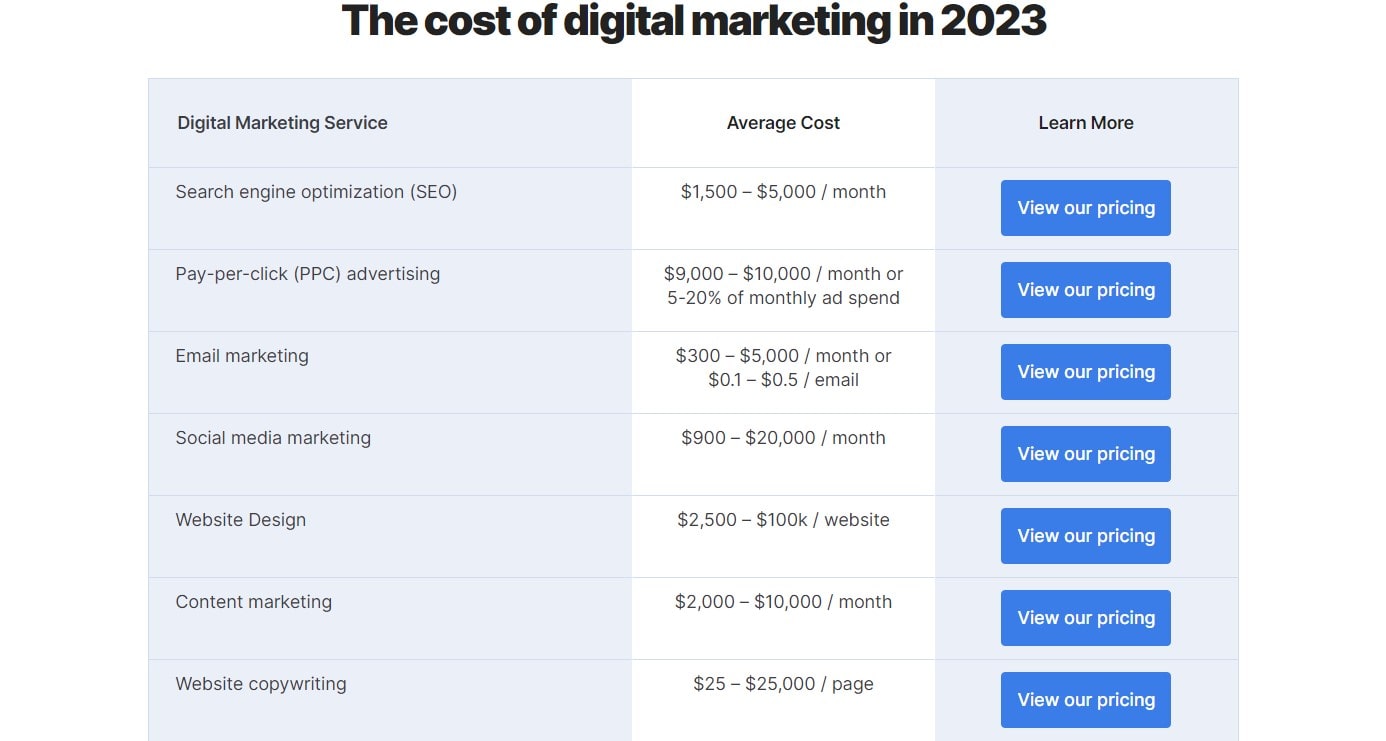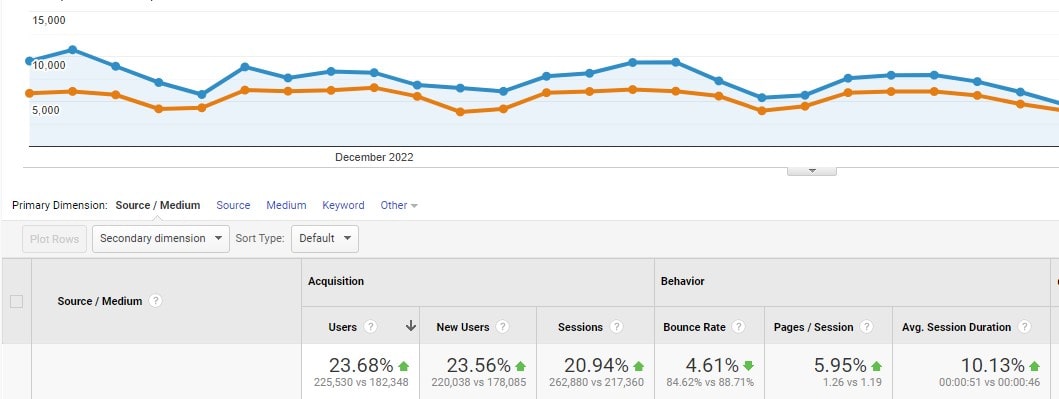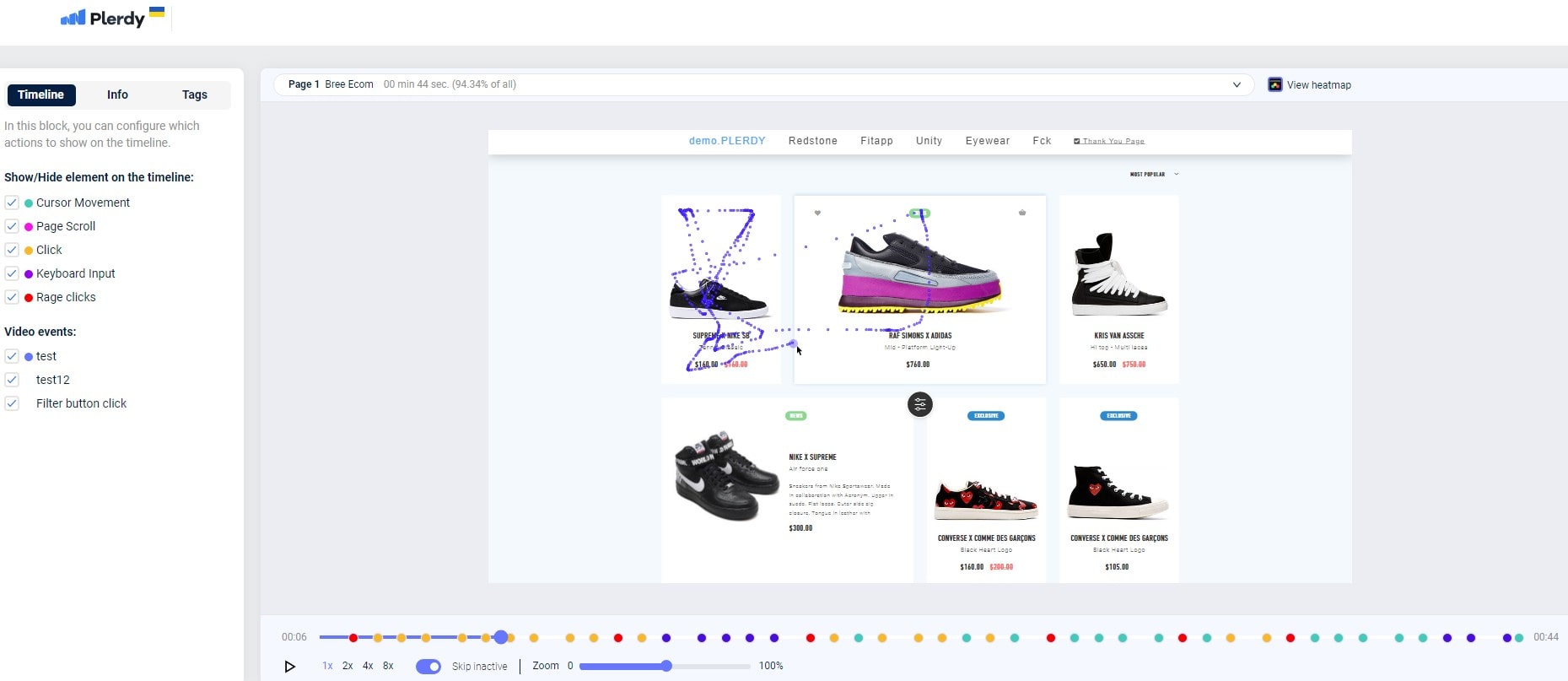Riding the digital wave, many business owners discover success starting their own digital marketing agency. Using creative methods in SEO, PPC, digital analytics, social media, and more, this fulfilling journey helps you to link companies with their perfect customers. Your agency might start to link companies with their target markets.
Think on the following main actions:
- Identify a niche—from IT startups to fashion companies—then identify your customer base.
- Make sure your agency shines in SEO, PPC, email marketing, and beyond—master key services.
- Create your team by looking for content, design, search engine optimization, and social media specialists.
- Leverage tools: maximize client results by using Plerdy for SEO and UX.
Seeing your firm as a digital compass leading companies over the huge digital terrain can help you to distinguish your work. Look for a distinctive spin, maybe emphasizing e-commerce startups or environmentally friendly companies to set apart your firm. In the end, your commitment to provide premium digital marketing solutions will enable companies to negotiate the road towards more online success and visibility. Ignite your desire, compile your tools, and let’s get right on creating your digital marketing agency.
Introduction to Digital Marketing Agencies

Starting a trip in the field of digital marketing companies requires a good knowledge of the dynamic, multifarious world of internet promotion. Managing SEO, content marketing, social media management, PPC, email marketing, and more, an industry-leading agency helps companies across the web of digital platforms and trends.
Imagine us painting a picture. Like a great conductor, a digital marketing agency arranges several parts of the orchestra—each reflecting a certain specialization, like:
- Focused on maximizing product pages, creating engaging email campaigns, and using influencers for product marketing, e-commerce
- Healthcare: Using customized emails to improve patient involvement, strengthen online reputation, and provide instructive blog content.
- Using geo-targeted marketing, building virtual tours, and using local SEO to draw possible house buyers will help you draw in business.
These companies are committed to developing customised plans, painstakingly created to satisfy particular business goals, thereby maximising online presence and client involvement. Their skillful conversion of casual web surfers into devoted consumers generates income and helps business expansion. They constantly adapt to match the always shifting digital terrain, therefore preserving their competitive edge for their customers.
In essence, a digital marketing agency is the vital link between a company and its possible consumers in the digital sphere—building digital paths that directly lead to their virtual doors, developing online identities, and crafting gripping storylines that bridge the two.
Understanding the Basics of Digital Marketing
Enter the vibrant field of digital marketing headfirst and discover a complex ecosystem where companies and consumers interact, engage, and grow connections. Leading digital marketing firms use a range of technologies and approaches outside the purview of conventional marketing.
An organization creates customized plans for several niches in the busy city of the online market. Think of an agency with retail concentration. To improve client engagement, this company creates appealing product descriptions, striking social media marketing, and AI-driven chatbots. By means of emotive storytelling, impact-oriented content, and social media platform advocacy campaigns, the agency may inspire support for a non-profit entity.
Strong knowledge of digital marketing principles enables these companies to coordinate several initiatives, each catered to the particular pulse of a given industry. Here is a quick overview of what they address:
- Content marketing is building brand stories, distributing interesting blog entries, and producing educational e-books.
- Social media marketing is keeping a strong online presence, increasing interaction with interesting content, starting successful ad campaigns.
- Customizing newsletters and using interesting email sequences helps to retain customers in email marketing.
- Pay-per- click (PPC) Google AdWords campaigns strategizing, landing page optimization, conversion rate improvement.
- Working with influencers, creating affiliate programs, and monitoring revenue is the essence of affiliate marketing.
Data analysis forms the foundation of all these pursuits. Digital marketing firms use analytics to obtain understanding of consumer behavior, campaign performance, and market trends; they do not act based just on gut feeling.
Digital marketing is essentially a mix of creativity and analytics, where agencies negotiate the corporate digital footprint, create engaging narratives, interact with target markets, and evaluate outcomes for ongoing improvement. Having a strong awareness of these fundamentals, digital marketing companies enable companies to flourish in a digital environment growingly linked.
Identifying Your Niche in Digital Marketing

Every agency finds its unique niche in the rich spectrum of digital marketing, much as a sculptor painstakingly chisels away to produce a masterwork. This specialization turns into the agency’s strength, its particular emphasis that distinguishes it in the busy digital industry.
Consider a digital marketing agency that has honed its hotel sector knowledge. It understands how to create engaging stories for bout-based hotels, create interactive virtual tours for resorts, and coordinate email campaigns encouraging possible visitors to schedule their next trip. Their awareness of the subtleties of this field helps them to create plans appealing to their target market.
On the other hand, an agency can decide to concentrate mostly on a given service, say social media marketing. This enables them to offer a thorough, all-encompassing solution across several industry sectors, therefore focusing on optimizing consumer involvement and brand visibility across platforms including Facebook, Instagram, LinkedIn, and more.
Selecting a specialty in digital marketing could be broken down along these lines:
- Industry Specialization: Serving a certain sector, say hospitality, technology, or fashion.
- Specializing in services like PPC, SEO, or content marketing, you shine.
- Demographic Specialization: Emphasizing a particular target group—such as millennials, elders, or pet owners.
Choosing a niche is about honing the agency’s expertise rather than about restricting its reach. It enables the agency to provide outcomes that generalize marketing organizations might find difficult to match, to comprehend the subtleties of a given market or business, and to offer unmatched service inside their domain.
Finding your own beat—your niche—allows your agency to dance to its own pace and resonates powerfully with the clients who require exactly what you offer in the throbbing pulse of digital marketing.
Creating a Solid Business Plan
Starting a digital marketing agency is like erecting a skyscraper; the success of the structure depends on its strength and accuracy of blueprint. This blueprint is a rock-solid business plan that offers the agency a clear road map across the ever changing digital terrain.
Think of an agency emphasizing e-commerce marketing. Its business plan lists its objectives: higher online sales, more website traffic, more consumer interaction. It covers the techniques—the development of striking product descriptions, PPC campaigns, email marketing sequences—as well as the success-oriented tools.
The firm strategy depends on a knowledge of the market. The brand of your agency reflects your beliefs, guarantees excellence, is more than just a logo or tagline—it’s an interesting narrative.The e-commerce agency is aware of the subtleties of the wants, pain issues, and ambitions of online merchants, not only of which it meets. This realization helps it to customize its products so that they always land right on target.
Important components of the corporate strategy of a digital marketing agency consist in:
- Executive Summary: Your company’s “elevator pitch” captures the values, vision, and goal of your agency.
- Detailed knowledge of your target market, industry trends, and competition will help you in market analysis.
- Services: Detailed analysis of your products and their market uniqueness.
- Sales strategy and marketing can help you to draw in and keep customers.
- Financial Projections: Anticipated profitability, expenses, and income.
- Organization and Management: Your staff’s roles, duties, and arrangement.
A company strategy is more than simply a one-time paper work. It shifts with agency and digital marketing. Equipped with a well-crafted business strategy, your firm may boldly march forward, prepared to meet every obstacle and grab every possibility the digital terrain offers.
Establishing Your Brand

Establishing your brand in the throbbing rhythm of the digital marketing scene is like laying down a trademark tune—a distinctive melody that appeals powerfully to your audience and distinguishes you from the others. The brand of your agency is a promise of quality, a reflection of your values, a compelling narrative, not just a logo or tagline.
Imagine an agency focusing on marketing for environmentally friendly companies. From their green logo signifying development and rejuvenation to their mission statement guaranteeing to raise the voices of companies dedicated to the environment, their brand exudes sustainability. Their brand narrative distinguishes them in the digital industry and speaks to their target consumer.
Building a strong brand calls for several important actions:
- This covers the name, logo, and tagline of your agency—all of which should capture your core and appeal to your target market.
- Creating a strong narrative that highlights your path, values, and goal will help to define your brand.
- Differentiating yourself in the realm of digital marketing by highlighting what distinguishes your firm will help to define your brand.
- Establishing a consistent tone and style in all of your communications can help your agency’s personality to show.
- Declaring your will to provide your clients with particular values and outcomes can help you build brand promise.
Every contact your agency has with your clients—that is, what they connect with, remember, and trust—your brand is the point of reference. Your digital marketing agency can captivate your audience, build enduring relationships, and create a harmonic symphony of success in the lively concert of digital marketing by developing a strong, appealing brand.
Legal Considerations for Starting a Digital Marketing Agency
Starting a digital marketing agency calls both business and legal expertise. It’s like painting a lovely mural; you must have the correct rights and protections in place to prevent possible deletion of your masterwork.
Imagine an email marketing-focused agency. It has to follow rules like the CAN-SPAM Act, which requires every marketing email to provide a “unsubscribe” choice. Alternatively an agency managing personal data that has to guarantee adherence to rules such as the GDPR in order to guard user information.
Navigating the legal issues of launching a digital marketing agency calls for several important actions:
- Business Structure: Deciding whether your agency will be a sole proprietorship, LLC, corporation, or partnership.
- Licensing and Permits: Getting the licenses and permits needed to run in your area is vital.
- Ensuring compliance with data protection regulations and developing unambiguous privacy rules for your organization and clients will help to strengthen both of these areas.
- Protection of intellectual property for brand, content, and creative assets includes copyrights, trademarks, and patents.
- Contracts and Agreements: Drafting clear, thorough contracts for clients, staff, and contractors will help to define rights, obligations, and conditions of service.
A good business owner directs their agency over the sea of legal obligations, just as a competent sailor safely guides a ship. Understanding these legal issues will help you create a digital marketing firm not just creatively brilliant and tactically smart but also legally sound—a vessel equipped to ride the waves of the digital marketing ocean.
Setting up Your Digital Marketing Tools and Platforms

Establishing the correct digital marketing tools is like putting together the crew and provisions for a journey. Your choice as an agency can help to determine whether your voyage across the sea of digital marketing is calm or stormy.
Consider a company emphasizing social media marketing for dining establishments. It uses content scheduling tools to keep posts consistent, analytics tools to track performance and adjust plans, and Instagram and Facebook to highlight mouthwatering cuisine.
Usually, a digital marketing agency has as its toolkit:
- Social Media Platforms: Choosing the correct combination depending on the tastes and demography of your customers. For a fashion brand, Instagram might be a hit; for a B2B client, LinkedIn might be quite successful.
- Material Management System (CMS): To properly manage and distribute material, use a strong CMS like Wix or PowerShell.
- Tools for SEO include Ahrefs or SEMRush for competitive analysis, keyword research, content optimization.
- Email Marketing Software: Mailchimp or ConvertKit are two tools for handling email lists, building campaigns, and monitoring performance.
- Analytics and Reporting: Tools like Plerdy, Google Analytics 4 or Tableau help one grasp campaign performance, user behavior, and to offer insights to clients.
Your agency will be ready to guide your clients’ campaigns toward success with the correct digital marketing tools under direction. Your digital marketing business will boldly negotiate the large, fascinating sea of digital marketing by keeping current with the newest tools, adjusting to new trends, and knowing the particular demands of every client.
Building a Team for Your Digital Marketing Agency
Creating a team for your digital marketing agency is like putting together the ideal band; every member must perform their instrument well, but the real harmony comes from their playing together. A well-coordinated team may turn your agency from a solo gig into an ensemble performance that appeals to clients and produces outstanding outcomes.
Consider a digital marketing firm for tech startups. It might have tech-savvy SEO consultants, creative content creators familiar with startup culture, and social media strategists adept in interacting the tech community.
Important responsibilities in a digital marketing agency usually consist in:
- SEO Specialists ensure your clients’ material ranks highly in search engine results by tuning the SEO tools.
- Content creators represent the voice of the brand and create the symphony of words that captivate readers.
- Social Media Managers: These maestros carry out the social media performance, thereby generating interaction and increasing reach.
- Your sound engineers, data analysts, fine-tune performance depending on analytics and comments.
- Project managers are like your band managers; they coordinate activities and keep everyone on target.
Still, the lineup should not be fixed. Your team should develop, much as music does. Digital marketing’s always changing trends mean that you should be ready to adjust. Perhaps your agency requires a data scientist as clients want deeper insights or a cameraman to ride the wave of video marketing. Your digital marketing agency band will not only play the existing tunes with grace but also be ready to perform the future symphonies of the marketing business as you strike the proper notes and rhythms.
Pricing Your Services Competitively

Pricing your digital marketing services correctly is like sailing the ship of your agency; get it right, and you will glide forward; get it wrong, and you can find yourself adrift. Pricing should represent the value you offer, be competitive in your industry, and above all help you to run your company.
Think of a boutique digital marketing agency focused in premium fashion businesses. More than discounts, their customers appreciate uniqueness and excellent service. They could thus choose a premium pricing approach that highlights their knowledge and fits the expectations of their customers.
Usually, a decent pricing scheme takes into account the following:
- Market Rate: Find out what rivals charge for like offerings. Should you are providing something special or better, don’t hesitate to charge a premium.
- Value supplied: Charge your fees according to the value your offerings to customers. Greater client ROI will help to explain more expensive prices.
- Costs: Count your overhead, tools, wages, and profit margin.
- The pricing model is Choose from a fixed charge, hourly rate, retainer, or performance-based pricing what best fits your services. The client and the service will affect the decision.
Recall, though, that price is not set in stone. Your pricing approach should alter to fit changes in the market, your company, or the demands of your customers, much as a sailor would modify sails to fit the changing wind. Done well, your pricing not only marks your position in the market—be it a premium choice for luxury brands or a reasonably priced alternative for small businesses—but also supports the journey of your agency over the digital marketing ocean.
Developing Your Digital Marketing Strategies
Managing the digital marketing terrain calls for a smart, dynamic approach fit for the goals and client requirements of your agency. Developing such plans requires a thorough research of statistics, a strong awareness of the market, and a creative ability to captivate consumers.
Imagine, for example, an organization committed to supporting environmentally friendly startups. Their approaches might embrace environmentally sensitive material, team with green influencers, and execute digital campaigns around major environmental events. Their target group would find great resonance in this niche-specific strategy, therefore enhancing brand credibility and visibility.
Usually, developing a good digital marketing plan calls for the following actions:
- Set goals including traffic, conversion rates, brand awareness, etc.
- Knowing your target clients will help you to better grasp their interests, needs, and internet activity.
- Choose among social media, email marketing, content marketing, PPC advertising the platforms most appropriate for your audience and goals.
- Blogs, videos, infographics, webinars, etc. are among the materials you should find to captivate your readers and inspire action.
- Based on performance data, pinpoint important indicators to track and modify your plan.
Your digital marketing plans guide your agency’s path to success, much like a ship marks its route on a voyage. Continue improving them, make use of the most recent digital tools and trends, and most importantly keep sensitive to the evolving tastes of your audience. In this sense, you will remain flexible and strong, prepared to ride the waves of the dynamic digital marketing sea.
Finding and Attracting Your First Clients

Bringing your initial clients on board determines the course of your digital marketing agency. Showing your value offer, engaging the correct audience, and turning prospects into devoted consumers all count most here. Consider an agency aiming at health-tech startups, for instance. Here’s how they could guarantee their starting customer base:
- Know Your Audience: Know the special requirements, difficulties, and objectives of health-tech companies. They need what kind of digital marketing help? Make your offerings fit for these requirements.
- Create a strong online persona: Using a well-designed website, active social media profiles, and interesting material appealing to your target market, highlight the talents of your agency.
- Use networking: Go to trade shows, join health tech-related internet forums and groups. This broadens your possibilities of reaching possible customers and helps you to interact with them.
- Present Value-Added Content: Create eBooks, web seminars, blog entries offering insightful analysis of digital marketing for health-tech companies. This fosters among your audience credibility and confidence.
- Employ case studies to: Show clear, observable outcomes from earlier projects—even ones unrelated to your area of expertise. Success has great power to influence possible customers.
Once you have drawn in prospects, make sure you present a first-rate proposal that effectively shows how your digital marketing solutions can increase their company expansion. Deliver flawless customer service and follow through; these first customers may be very helpful in generating recommendations and quotes, so enabling your agency to establish a reputation for excellence in the digital marketing scene. Recall, the best business plan available is that of a delighted client.
Nurturing Client Relationships for Long-Term Success
Long-term success for every digital marketing agency depends mostly on developing customer relationships. It’s about creating enduring alliances that support corporate development, not only about producing outstanding performance.
Let’s center on an agency designed to serve the e-commerce sector. Relationship building for an agency of this kind can entail the following:
- Know client needs: Maintain open channels of contact and aggressively seek comments.
- Provide tailored solutions: Avoid using a one-size-fits-all strategy. Create custom marketing plans that take use of the particular possibilities and difficulties each customer presents.
- Show consistent value: Show your value always by producing quantifiable achievements. Show how your ideas affect their bottom line using analytics.
- Sort client satisfaction first: Every client contact presents a chance to surpass expectations. Be always eager to go above and above, proactive, and sensitive.
- Remain current: E-commerce is a changing industry. Match your services to industry developments and advances to enable customers remain competitive by include these into your offerings.
Think now of a long-standing customer—an online fashion merchant, for example. You have run effective campaigns for them, which have raised online traffic and sales. To help them stand out, respond to this problem by spotting new marketing strategies include immersive virtual shopping experiences or influencer relationships. Keep providing insightful analysis and creating fresh plans to propel their development.
This not only encourages client retention but also can result in referrals, so enabling your agency to flourish.
Measuring and Reporting Results Effectively

Running a good digital marketing agency depends critically on accurate result measuring and reporting. Your clients want not only outstanding outcomes but also openness and understanding of the effectiveness of their marketing.
Assume you are overseeing a hotel client’s social media strategy. You have a strong plan to increase their web presence and encourage participation. But success is about presenting your accomplishments in an understandable, consumable fashion, not alone about following this strategy.
Use these guidelines to properly assess and document findings:
- Key Performance Indicators (KPIs) could be client acquisition cost, website traffic, conversion rate, or engagement level.
- Collect and evaluate data using digital technologies found in analytics. Rich insights into campaign performance can come from tools including HubSpot, Google Analytics, and Sprout Social.
- Clear Reports Right Now Create simple, graphic reports stressing important statistics and trends.
- Describe Results: Simplify difficult measurements into understandable language that highlights the actual influence of your work. Show, for instance, how bookings climb in line with social media activity.
- Share ideas and recommendations. Based on facts, provide insightful analysis and suggest strategic changes. For example, because of better interaction rates, one might turn their attention from Facebook to Instagram.
When you get back to your hotel client, you might discover that your social media effort has greatly increased interaction, which would result in more direct bookings. Clearly show this link in your report, underline the particular strategies that proved successful, and suggest future actions to build on this development. Not only does good measurement and reporting of results legitimize your efforts, but it also helps to establish confidence and closer ties with clients.
Expanding and Scaling Your Digital Marketing Agency
Every successful digital marketing agency eventually grows. Scaling your activities will provide a difficulty as your clientele grows and income increases. It is difficult to strike the balance between expansion and preserving client satisfaction and service quality.
Say your agency specialized in the fitness sector. You have developed a great portfolio and given local gyms and fitness bloggers first-rate service. It’s time to expand from a growing customer list without compromising the caliber of your products.
The following actions will help your company to effectively grow and scale:
- Identify Growth Opportunities: Review historical performance to find areas with great future development. If your fitness influencer efforts are surpassing others, for example, think about concentrating more there.
- Invest in Your Team: As your agency expands, so should yours. Attract personnel with specific knowledge to meet growing demand and diversify your products.
- Simplify procedures: Apply project management techniques to increase effectiveness, guarantee deadlines are reached, and preserve constant communication both with clients and inside your team.
- Automate Where You Can: Email marketing, social media scheduling, and customer relationship management tools can all help to automate daily chores, therefore saving your team’s time for strategic projects.
- Foster Client Relationships: Maintaining current relationships while seeking new customers will help to strengthen client relations. Contented consumers can be a source of recommendations, a reasonably priced way for growth.
These guidelines will help your hypothetical agency—which is focused on fitness—to soar. Hiring a social media specialist might help you oversee more influencer campaigns, hence increasing your income generation. Your digital marketing agency will scale effectively if you give efficiency, client satisfaction, and strategic investment top priority.
Avoiding Common Pitfalls in the Digital Marketing Agency Business

Running a digital marketing agency might feel like negotiating a minefield. Even the most seasoned business owners can trip. Imagine your agency specializes in the cutthroat fashion business. These are some typical traps you would want to stay away from:
- Underpromising and Overpromising: You can promise more than you could provide to get a notable fashion company as a client. Try to resist this impulse. Overpromising can result in lost business, damaged reputation, and unhappy consumers.
- Neglecting Client Relationships: Always give maintaining great relationships with your clients top priority, regardless of your level of activity. Neglect may sour a relationship more quickly than a trend in fashion disappears.
- Ignoring Economic Trends: In a sector like fashion that moves quickly, trends could alter in a flash. Should you go behind, your agency can find itself behind as well. Develop the practice of keeping current on the most recent developments in your field of work.
- Ignoring Differentiation: Not only are you one of the digital marketing companies aiming at fashion companies. You have to emphasize what distinguishes your digital marketing agency to be memorable. Differentiate or risk merging in your analytical approach, artistic vision, or depth of experience.
- Not Following Measures: You’re aiming in the dark without examining marketing data. Track the KPIs that count to your customers whether they relate to engagement, conversion, or brand awareness.
Managing the digital marketing agency terrain is challenging, particularly in relation to a sector as vibrant as fashion. But by avoiding these typical mistakes, you can guide your agency clear of problems and guarantee a great future for your company.
Bottom Line
Remember that every action counts as you go across the digital terrain and start the exciting path of founding your own digital marketing agency. You are laying the groundwork of your agency from establishing your niche and polishing your offerings to collecting a formidable team and applying strong tools like Plerdy for SEO and UX analysis.
Accept the core of digital marketing—transformation. Digital trends come and go; sectors change; consumer behavior changes all the time. Always maintain a finger on the pulse of the digital world; be ready to adjust and tenaciously keep going. Using analytics and data can help you to see your choices supported by exact figures and insights, so ensuring the value of every action.
Though the process seems long, approach it methodically. Recall that you are establishing an agency helping other companies reach their objectives and increase their web presence, not only a corporation. Be tenacious, patient, and upbeat.
Let the material sink in as you sign off from this page. These approaches will help you to realize your digital marketing agency. Thus, let us begin; a digital revolution is just waiting for you!
